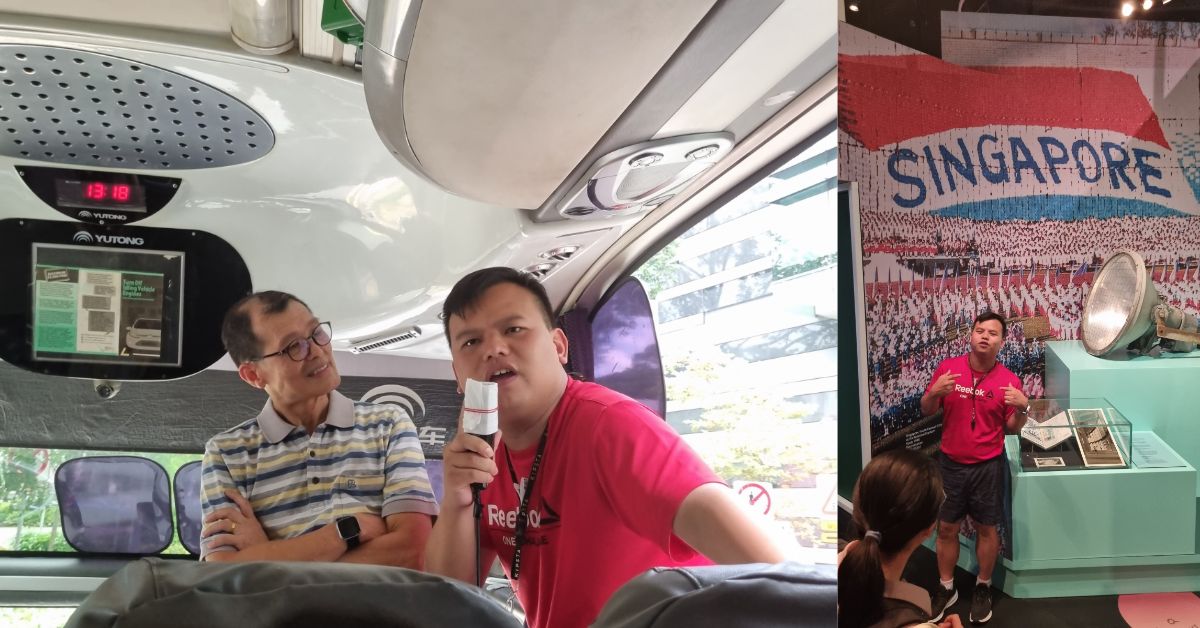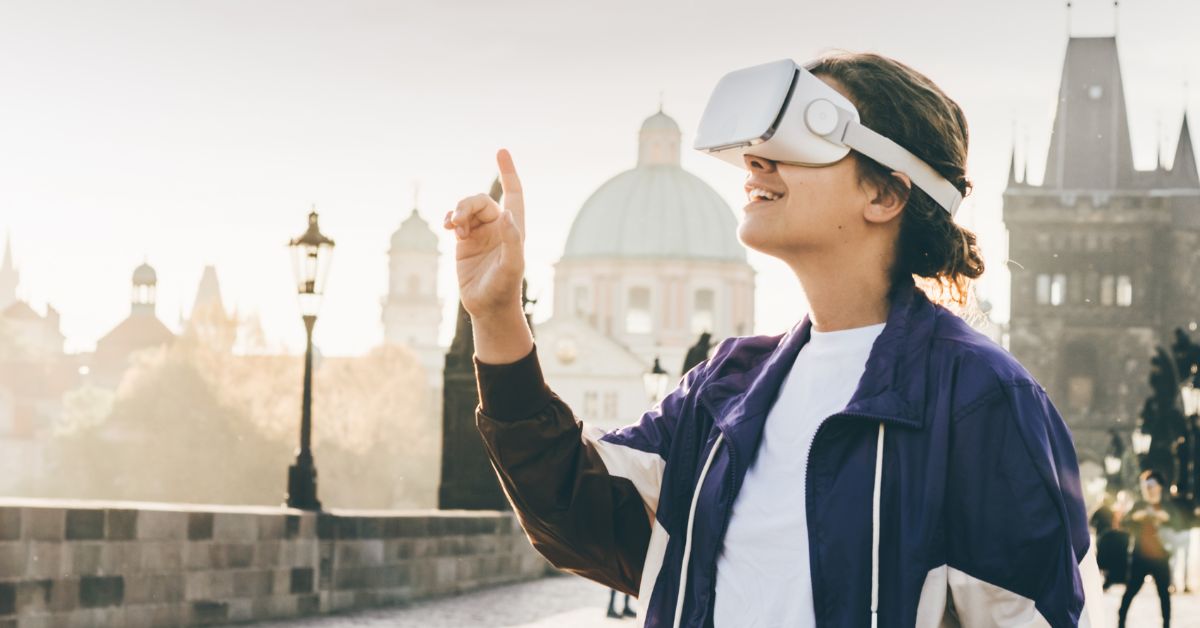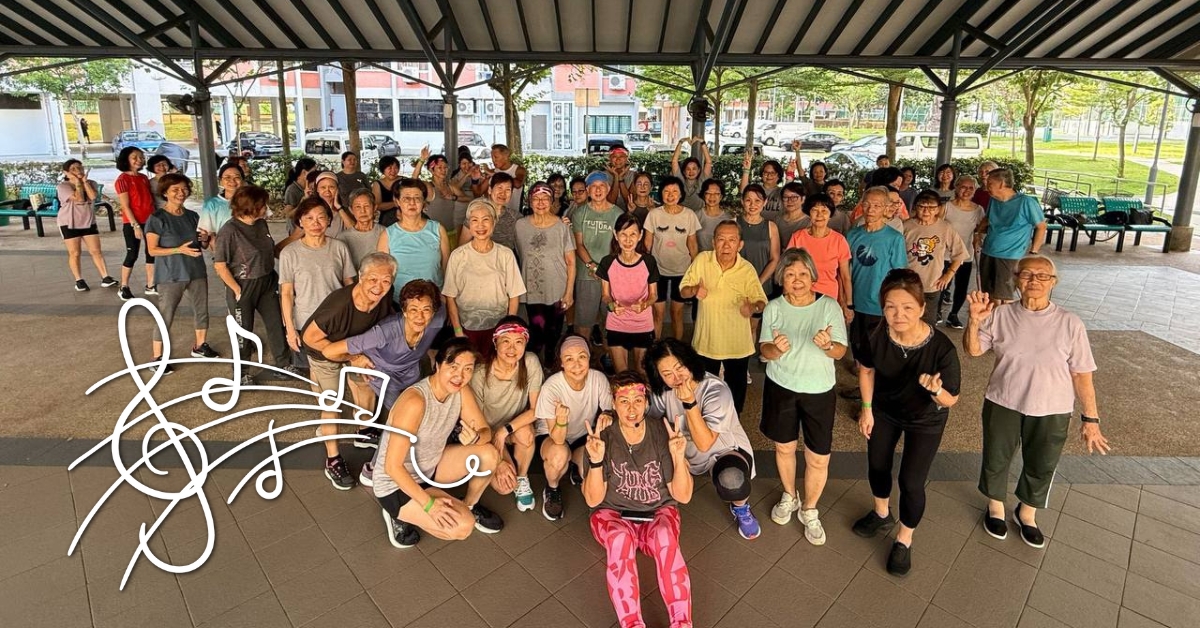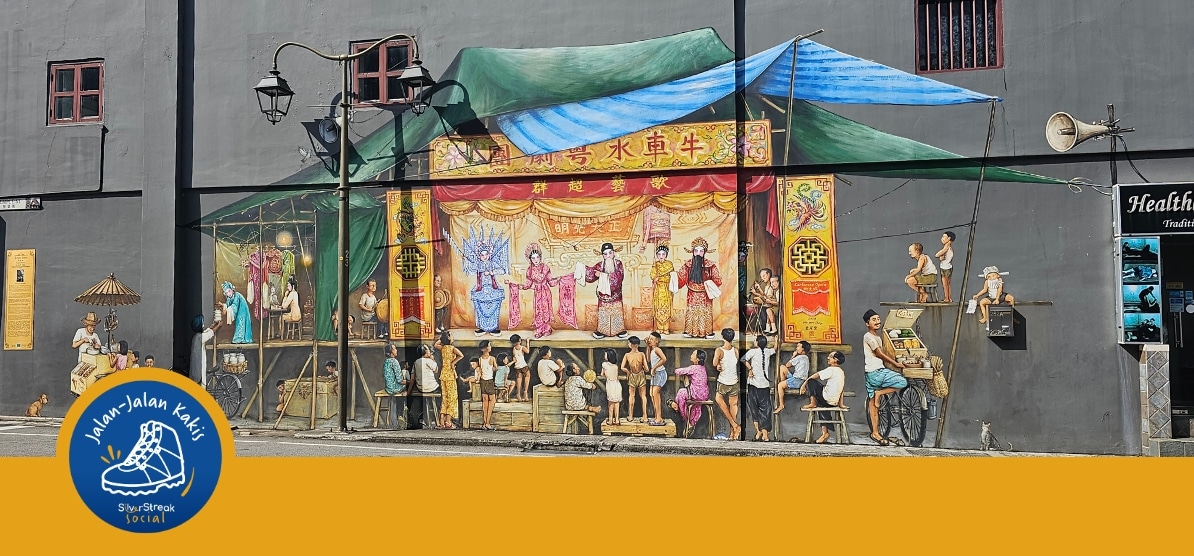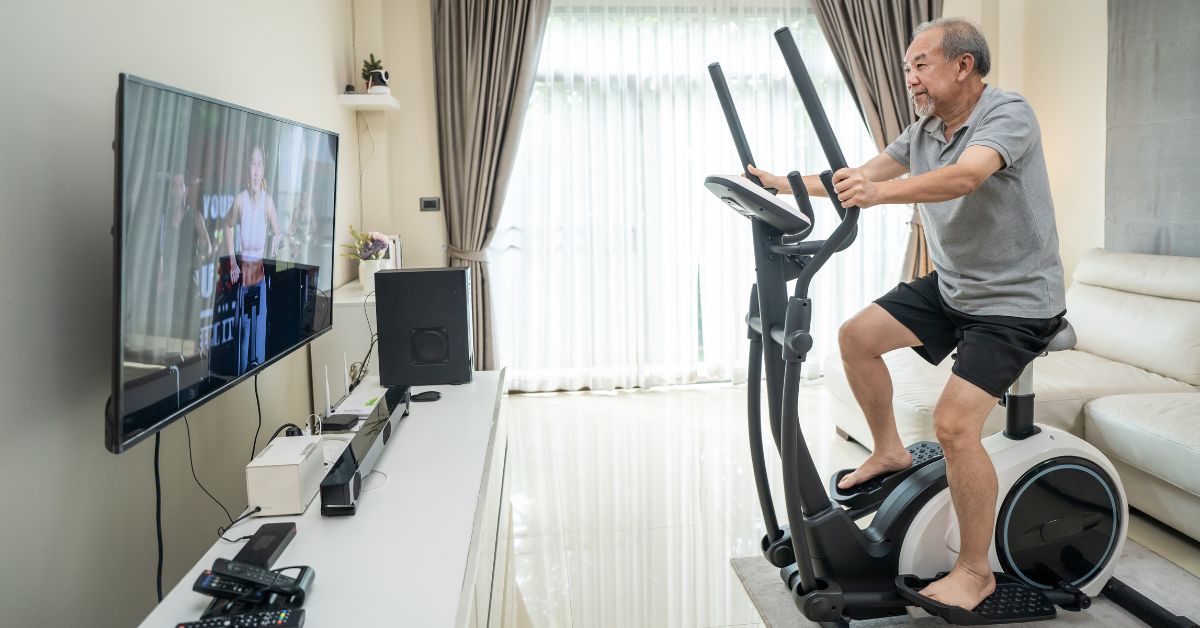
Technology is prevalent in every facet of our lives, and has been beneficial in the area of sports and fitness. From refining performance to aiding in recovery, technological advancements are fundamentally altering how athletes – Olympic or otherwise – train and compete.
The benefits extend far beyond professional sports, reaching seniors striving to maintain their health and fitness levels, and even helping them perfect their golf swing!
Let’s explore how technology worked into fitness devices for seniors — encompassing biometric monitoring, virtual reality training, and more — is revolutionising the fitness movement.
Biometric monitoring: Optimising health and performance with fitness devices for seniors
Biometric monitoring devices have transformed how individuals track their health and fitness progress, offering real-time insights into various physiological metrics.
Advertisement
Among these devices, fitness trackers and smartwatches have become indispensable tools for fitness enthusiasts of all ages. Seamlessly integrating into daily life, these wearable devices provide continuous monitoring of vital health parameters such as heart rate, sleep patterns, and activity levels.
A notable example of advanced biometric monitoring technology is Whoop‘s heart rate variability (HRV) tracking. HRV, a measure of the variation in time intervals between heartbeats, reflects the body’s ability to adapt to stress and recover efficiently.
Whoop’s HRV tracking feature furnishes users with invaluable insights into their physiological state, enabling them to accurately gauge their readiness for physical activity and recovery periods.
For seniors, biometric monitoring offers a straightforward means to track their health metrics with precision and ease.
By monitoring heart rate, sleep quality, and activity levels in real-time, seniors can proactively manage their health and make informed decisions about their exercise regimen.
By ensuring they exercise within safe limits and avoid overexertion, seniors can diminish the risk of injury and maintain their fitness levels more effectively.
In professional sports, biometric monitoring plays a pivotal role in fine-tuning training strategies and maximising performance outcomes.
By monitoring subtle changes in their physiological responses over time, athletes can discern signs of overtraining or fatigue early on, facilitating adjustments to their training load and averting burnout or injury.
Performance analysis: Precision in training
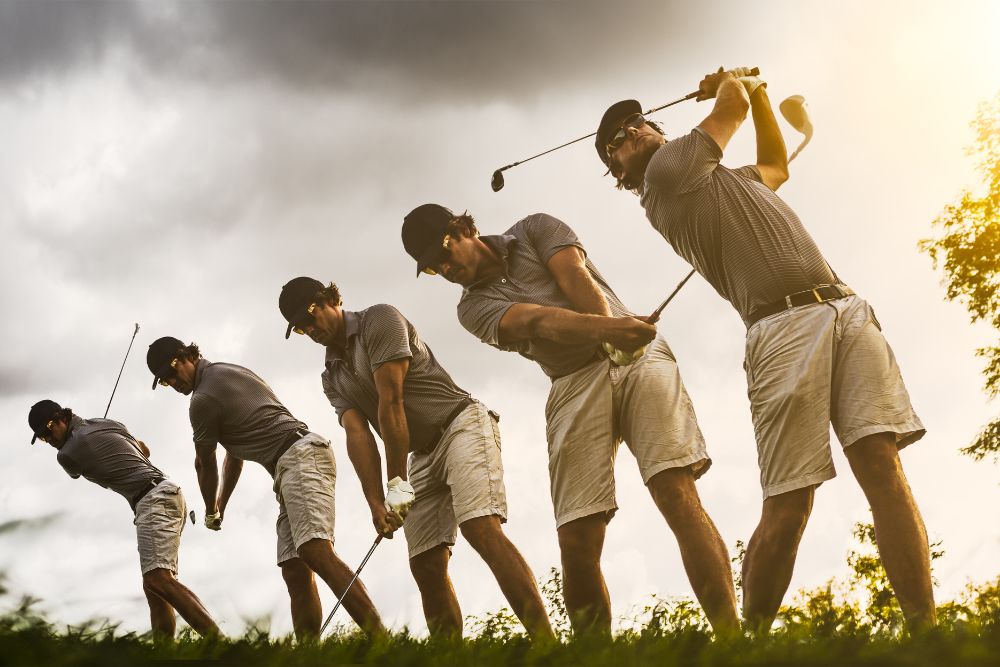
For seniors, maintaining an active and healthy lifestyle is vital for preserving independence and quality of life. Performance analysis technologies aid in optimising exercise routines and tracking progress along the journey.
One such technology, exemplified by Catapult Sports’ GPS tracking devices, furnishes invaluable insights into an individual’s fitness journey. By studying metrics such as distance covered, acceleration, and heart rate, seniors can tailor their exercise programme to address specific needs and goals.
Whether enhancing endurance, building strength, or refining balance and coordination, these insights enable seniors to make informed decisions about their workouts to sustain fitness levels and stave off age-related decline.
Performance analysis technologies are equally indispensable for professional athletes striving for excellence in their respective sports. Take, for instance, Joseph Schooling, the former Singapore Olympic champion, who harnessed cutting-edge tools to refine his stroke technique and race strategy.
Other benefits of performance analysis technologies in fitness devices for seniors
- Optimising Exercise Programmes:
Motion tracking sensors and wearable devices offer insights into movement patterns during exercise. By analysing factors like range of motion, balance, and gait, these technologies help tailor exercise programmes to address specific weaknesses and imbalances, reducing the risk of injury and enhancing overall effectiveness.
- Monitoring Progress:
Performance analysis technologies facilitate progress tracking over time, furnishing objective data on key fitness metrics like strength, endurance, and flexibility. Seeing improvements in these metrics can motivate seniors to stay engaged in their fitness regimen, leading to better long-term adherence and outcomes.
- Preventing Overexertion:
Seniors are prone to overexertion and injury during exercise. Performance analysis technologies aid in monitoring exertion levels and exercise intensity in real-time, enabling adjustments to workouts as needed to avoid pushing too hard. This proactive approach reduces the risk of overuse injuries and promotes safe and sustainable exercise habits.
- Enhancing Quality of Life:
Regular physical activity is critical for maintaining health and mobility as we age. Leveraging performance analysis technologies to optimise exercise routines enables seniors to enhance their overall fitness, mobility, and quality of life. Whether tracking progress in strength training, monitoring cardiovascular fitness during aerobic exercise, or assessing balance and coordination, these technologies empower seniors to take charge of their fitness journey and age gracefully.
- Fitness is More Fun with Friends:
With technology, individuals are never alone on their fitness journey. Platforms like Strava facilitate sharing workouts and connecting with a community, akin to being part of a sports team, whether as a senior citizen or a professional athlete.
As Singapore leads the charge in adopting innovative fitness technologies, programmes like the Smart Nation initiative promote the use of technology to enhance citizens’ lives, including their health and well-being.
ActiveSG, a national initiative, provides heavily subsidised access to sports facilities and fitness programmes across Singapore, making staying active more affordable and accessible for all residents.
Healthy 365, an app developed by the Health Promotion Board (HPB) of Singapore, aids users in tracking physical activity levels, accessing personalised health assessments and challenges, and finding educational resources on topics such as nutrition and exercise. The app endeavours to empower individuals to take control of their health and lead healthier lifestyles.
Virtual Reality (VR) training: Immersive learning for seniors & athletes
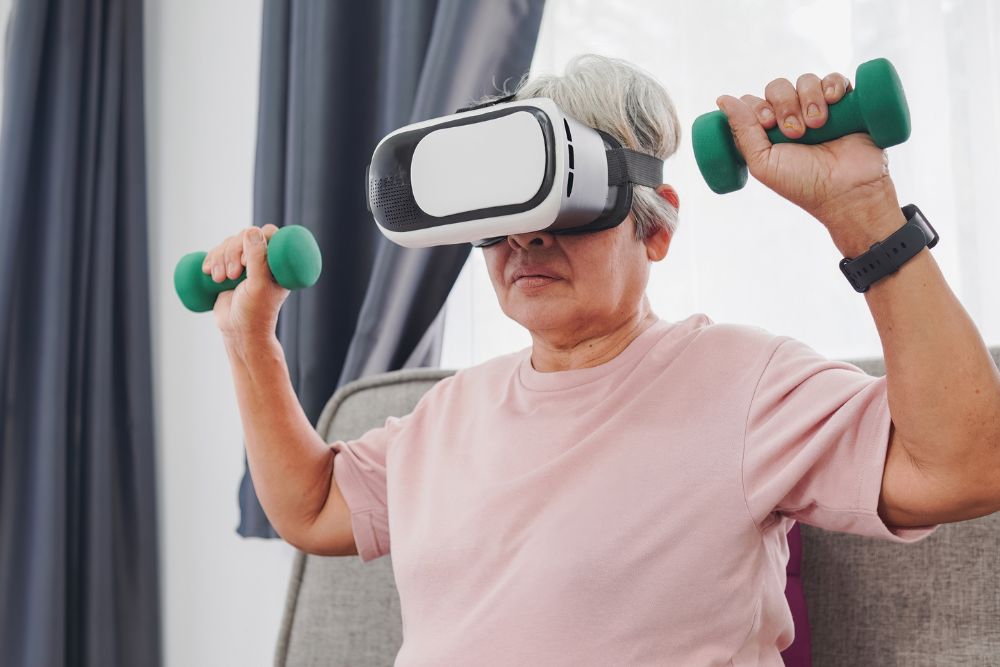
Virtual reality training has transformed how individuals, including seniors and athletes, approach skill development and physical conditioning. By immersing themselves in simulated environments, users can engage with realistic scenarios and challenges that facilitate learning and skill acquisition.
For seniors, VR training presents a unique opportunity to enhance cognitive function and coordination in a safe and engaging manner. Imagine an older adult participating in virtual Tai Chi sessions, practicing movements, and improving balance without the risk of falls.
Visualise doing yoga on a beach in Bali or Tai Chi on the Great Wall of China with apps like Supernatural. Studies indicate that VR training can positively impact cognitive abilities such as memory and attention, making it an effective tool for maintaining brain health as we age.
Athletes have also embraced VR training as a means of refining their skills and gaining a competitive edge. Some professionals utilise VR simulations to improve performance before major competitions.
Moreover, VR training offers athletes the chance to practice decision-making under pressure and enhance spatial awareness in a controlled setting.
For professionals, augmented reality (AR) is akin to having a holographic coach. Apps like AR Runner (iOS only) create virtual running courses and challenges, providing a gaming-like experience while enhancing performance.
AI-Powered coaching: Personalized performance enhancement
Artificial intelligence (AI) is an exciting development shaping how seniors and athletes approach fitness and training. It promises personalised coaching and performance insights tailored to individual needs, revolutionising exercise and health maintenance.
Platforms like Elitefit.AI use sophisticated algorithms and machine learning to analyse vast amounts of data, offering actionable feedback on technique, training load, and recovery strategies.
This tailored approach optimises performance and reduces the risk of injury, crucial for long-term health and fitness.
Instant feedback on training sessions and progress toward fitness goals, along with metrics like heart rate variability, workload, and recovery status, empower individuals to adjust workouts for steady progress and injury prevention.
Mobile applications: Your pocket-sized personal trainer
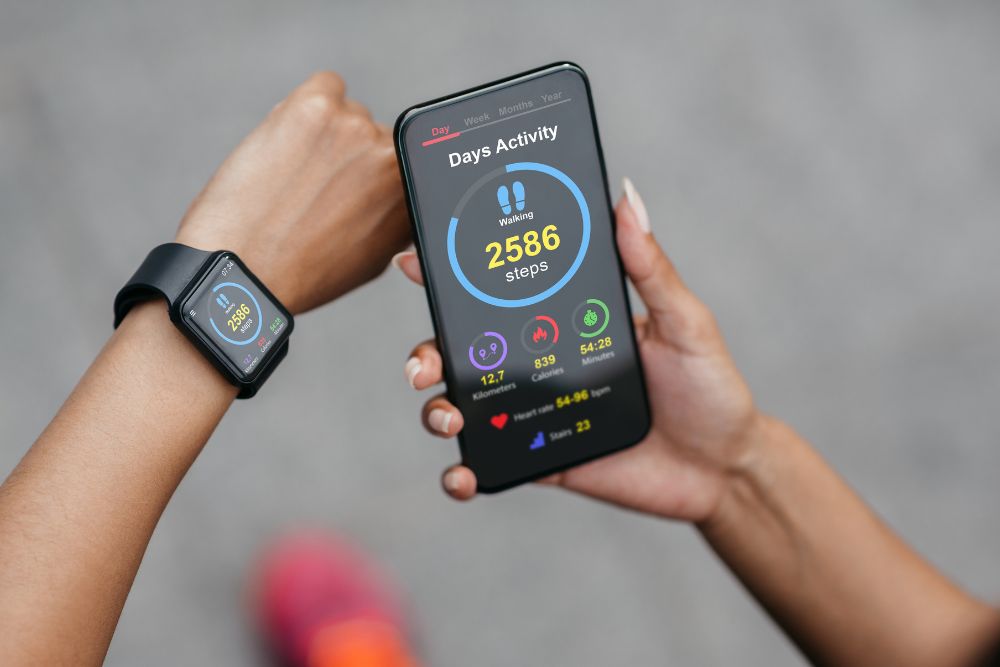
In today’s digital age, mobile applications have transformed fitness and well-being approaches, offering a plethora of features from tracking daily steps to providing tailored workout routines.
- MyFitnessPal:
This app acts as a dedicated personal trainer and nutritionist, allowing users to log meals, track calorie intake, and monitor macronutrients. It syncs seamlessly with fitness wearables, providing real-time data on steps taken, heart rate, and sleep patterns. - Alpha Progression:
Focused on strength training, Alpha Progression offers customisable workout plans and tracks progress, ideal for seniors aiming to build muscle and maintain overall fitness. - 99Walks:
Encouraging virtual challenges and community engagement, the app lets users set goals, track steps, and participate in fun challenges with others. - MapMyWalk:
Designed specifically for walking, this app allows users to map routes, track distance, and monitor progress, perfect for seniors who prefer walking as their primary exercise. - Nike Run Club:
Catering to runners of all levels, Nike Run Club provides guided runs, training plans, and motivation, allowing users to customise runs based on fitness level.
Smart home gym equipment: Your living room just got an upgrade
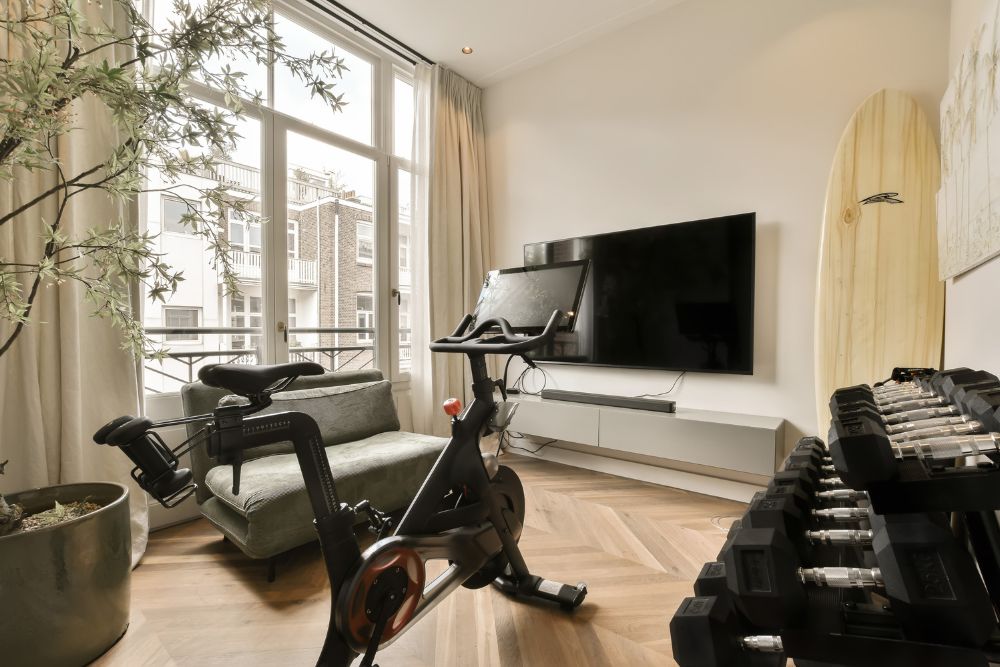
Say goodbye to monotonous treadmill sessions and hello to elevated home workouts with smart home gym equipment. These cutting-edge devices transform living rooms into fitness havens, catering to both seasoned athletes and seniors seeking gentle exercise.
- Peloton Interactive Bike:
More than just a stationary bike, Peloton offers an immersive fitness experience with a large touchscreen display, live classes, and on-demand workouts that adjust intensity based on fitness level. Whether climbing virtual hills or sprinting through scenic landscapes, it’s like having a personal trainer at home. - Forme Studio Mirror:
Combining form and function, the FORME Studio is a smart fitness mirror with a large 4K touchscreen display, high-definition cameras, and expert trainers. Offering live and on-demand workouts, it caters to various fitness needs, from casual golfers improving their game to individuals seeking personalised workout plans.
Recovery: Accelerating healing and regeneration
After intense workouts, technologies aiding athlete recovery, such as NormaTec compression boots, play a crucial role in reducing muscle soreness and expediting recovery times.
By enhancing blood flow and lymphatic drainage, these devices promote faster recovery between training sessions and competitions.
Seniors can also benefit from such technologies, promoting muscle recovery and joint health as they engage in physical activity to maintain fitness levels. On the app front, Pliability focuses on mobility, flexibility, and injury prevention, offering guided stretching routines to improve joint health.
The integration of technology into sports and fitness is transforming how we train, compete, and stay healthy. By embracing these technologies and harnessing their potential, individuals can unlock new levels of health, fitness, and well-being, paving the way for a healthier future for all.

